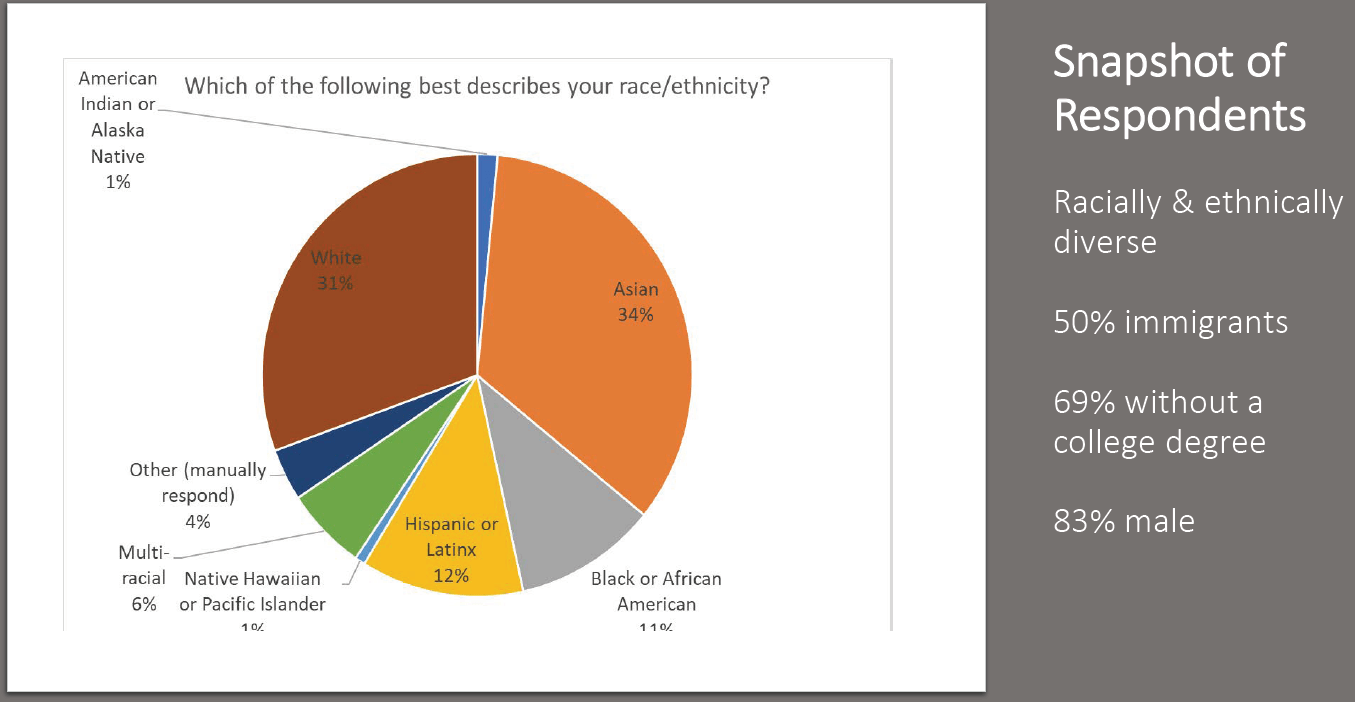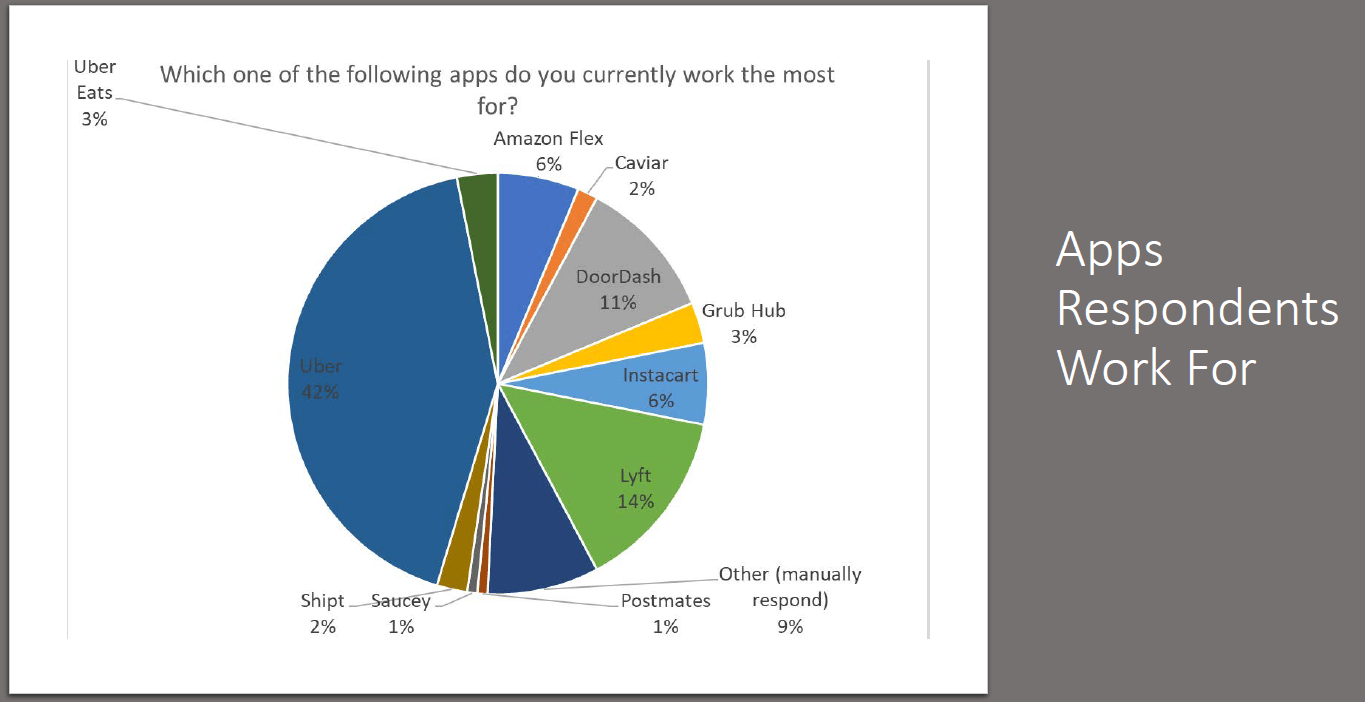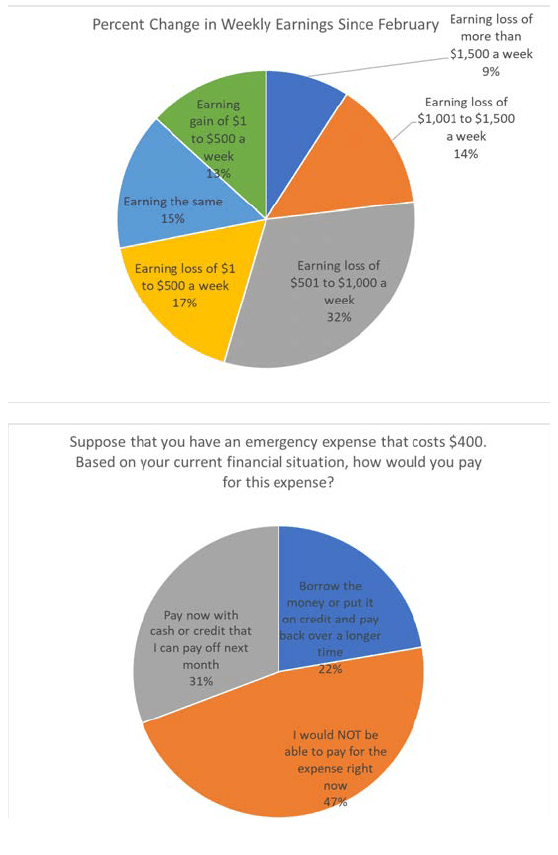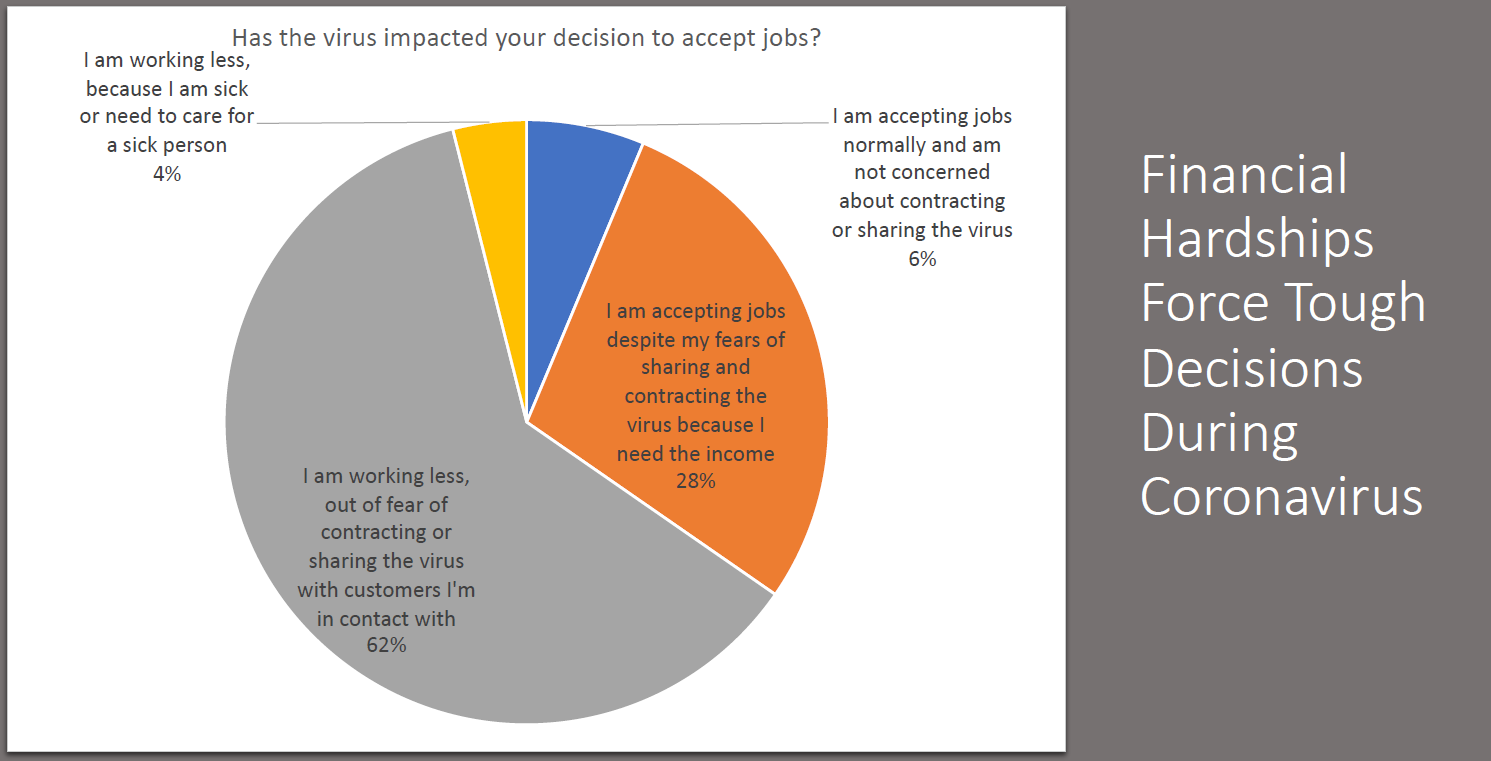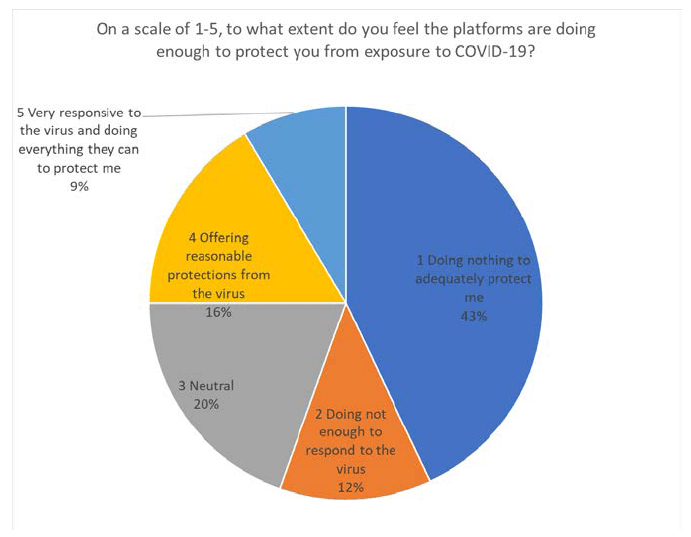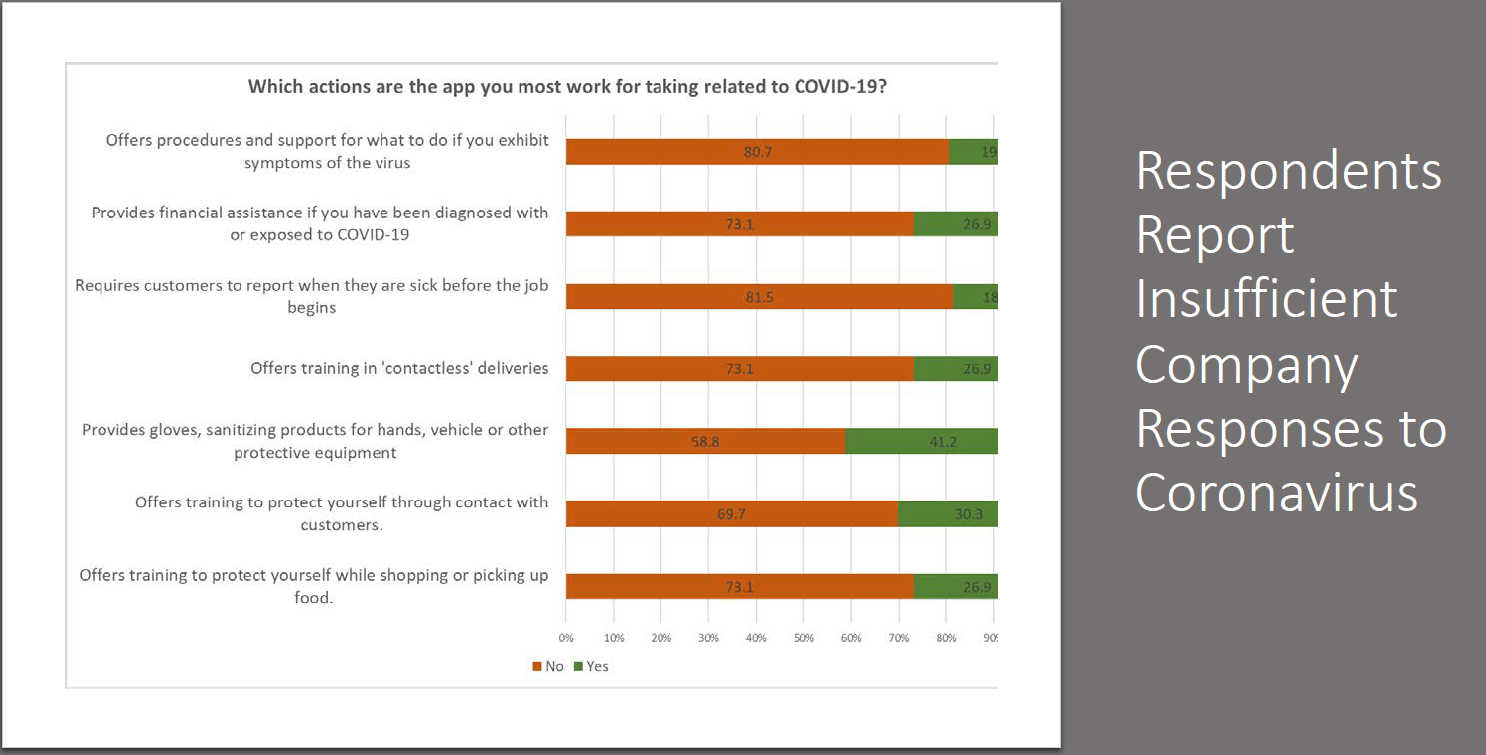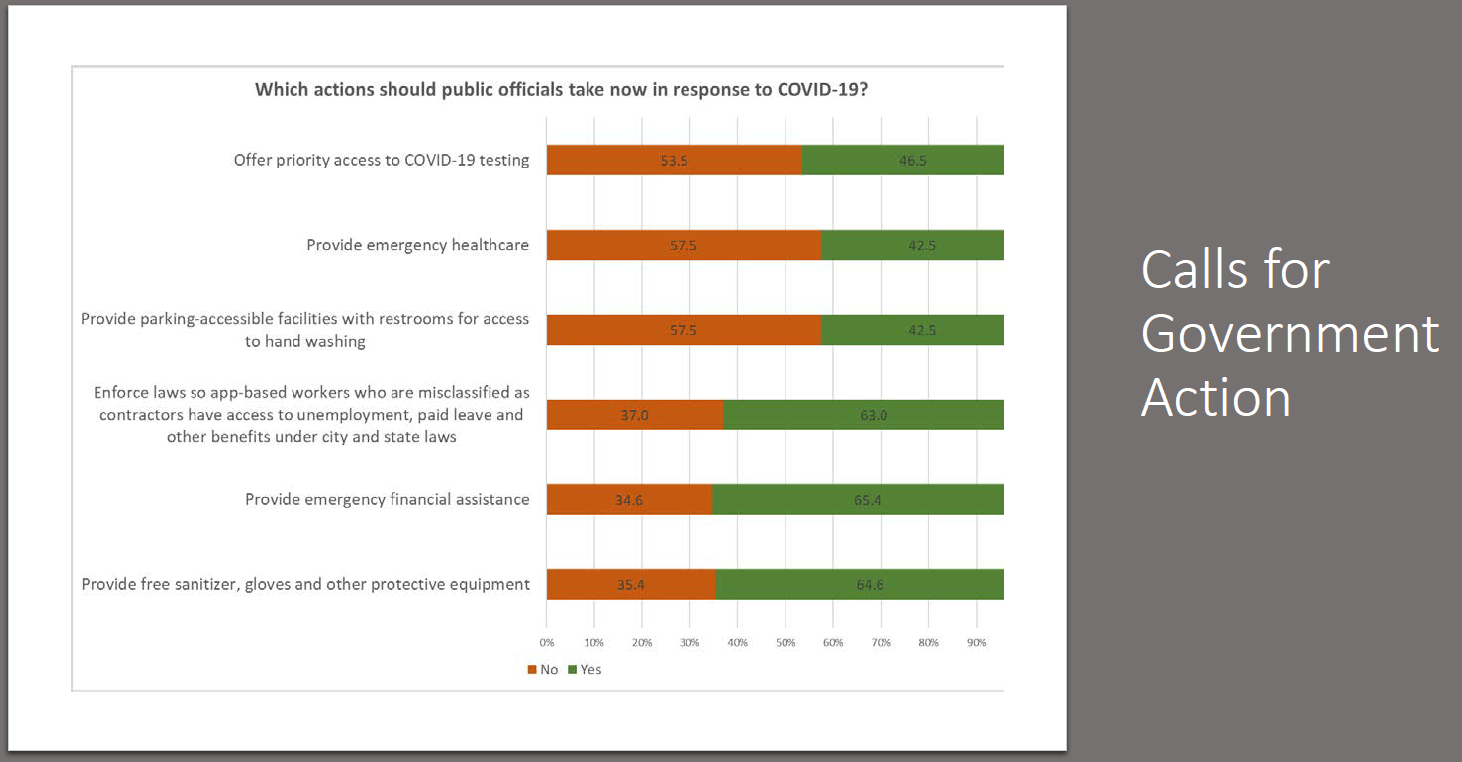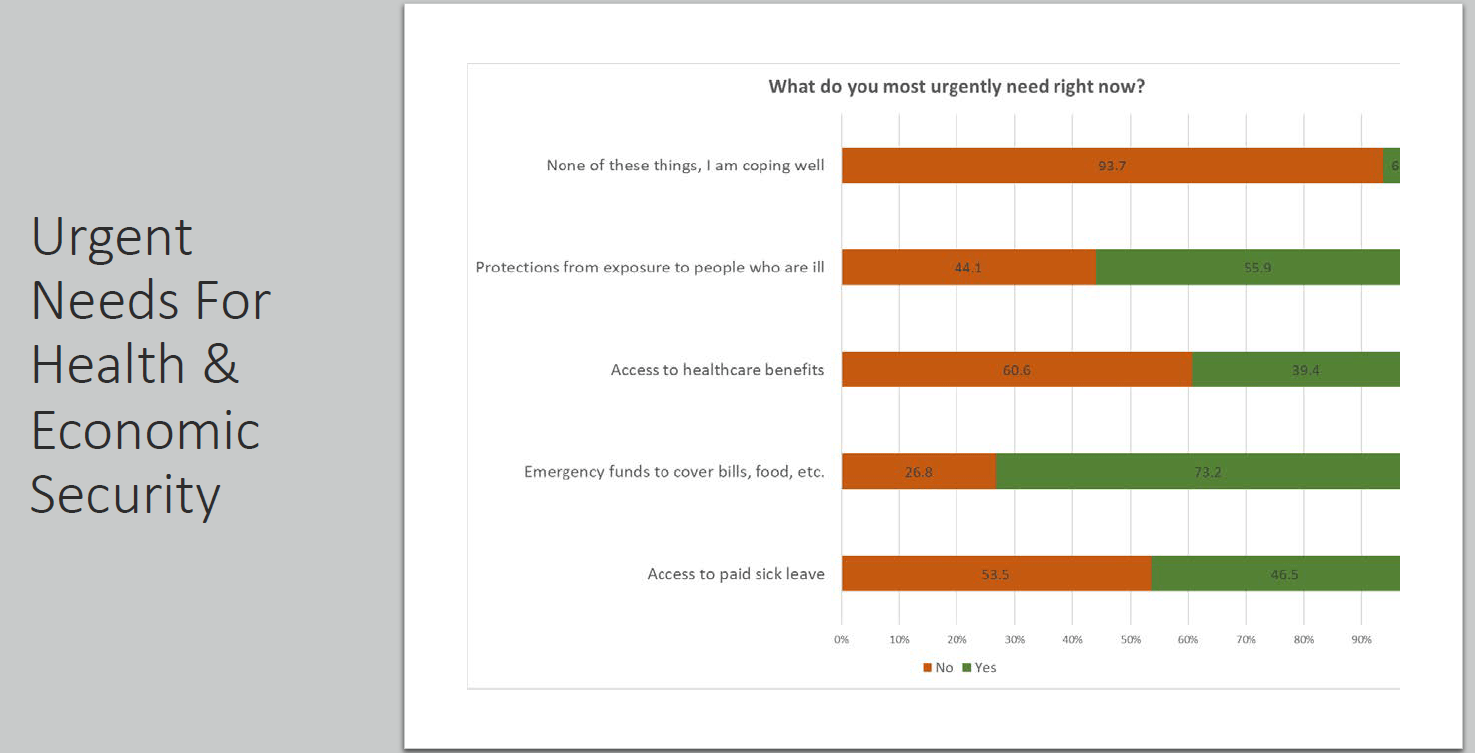The San Francisco Local Agency Formation Commission (an important City watchdog) released a study about the impact of COVID-19 on gig workers.
Q1 2020 hedge fund letters, conferences and more
Some findings:
- More than half of respondents have lost between 75 and 100 percent of their weekly earnings on the platform companies since February
- Only 31% would be able to pay immediately a $400 emergency expense
- 43% of respondents said the major platform company they work for was doing
nothing to adequately protect them, - 62% are working less because they fear for their health, 28% are taking jobs because they need the money badly
- 17% have no health insurance
- 73% report that their primary platform company are not providing financial support if they are exposed to or contract COVID-19.
- 81% report that their primary platform company is not requiring customers to
report that they are sick before they accept the job - Nearly two thirds of those surveyed wanted public officials to take specific
actions in response to COVID-19, including:- Provide free sanitizer, gloves and other protective equipment;
- Provide emergency financial assistance;
- Enforce laws to ensure they had access to unemployment, paid leave and
other benefits of city and state laws.
219 respondents filled out the survey in April. 41% primarily work on food &/or grocery delivery apps, w/nearly half made the switch from ride-hailing due to covid-19. 35% are working on ridehailing apps. Nearly one quarter stopped working on the apps when the virus hit.
Memo:
To: Bryan Goebel, SFLAFCO
FROM: Chris Benner, UCSC
RE: Preliminary Results, Survey of COVID-19 Impacts on Ride Hailing and Food Delivery Workers
As you know, working with our collaborators at Jobs With Justice Education Fund and Jobs with Justice San Francisco, in early April we launched an online survey of platform-based food and grocery delivery and ride-hailing workers to better understand, how the COVID-19 pandemic is affecting their work, the types of support they are receiving, both from the platform companies and from other sources, and the continued needs they face. We will provide a more complete analysis of these survey results in the second week of May, as part of our full research report to you on the broader study we are conducting for you. However, with the San Francisco Board of Supervisors actively considering policies related to protecting food and grocery delivery workers, I wanted to provide you with this summary of preliminary results from our survey.
While the specific numbers my shift by the final analysis of the survey, I am confident that the broad patterns I am sharing here are an accurate portrayal of the survey respondents. Overall the picture is very clear: these platform-based food & grocery delivery and ride-hailing workers are struggling financially. They provide critical services, which exposes them to the public, and yet are not properly protected either from contracting or spreading the novel coronavirus. I believe it is important for both platform companies in this sector and public officials to take the necessary steps to ensure this workforce and the population they serve are properly protected.
Key findings from the survey include:
- People surveyed represent a broad spectrum of the industry
- 41% were currently working primarily in food and/or grocery delivery, with nearly half of those having shifted from ride-hailing. 35% continue to work on ride-hailing apps, with the remainder mostly no longer working.
- 83% of respondents were men, 50% were immigrants, 69% were people of color, and 69% are without a college degree.
- People surveyed face significant economic insecurity:
- More than half of respondents have lost between 75 and 100 percent of their weekly earnings on the platform companies since February
- One third reported still accepting jobs despite their fears of spreading or contracting the virus
- Only 31% would be able to pay immediately a $400 emergency expense
- 17% have no health insurance, and another 32% obtain health insurance through Covered California/Medical or another state/federal insurance program
- Workers are largely dissatisfied with how the platform companies have responded to COVID-19
- 55% of respondents said the major platform company they work for was either “doing nothing” or “not doing enough” to adequately protect them or respond to the virus, compared to 25% who said the app was offering “reasonable protections” or was “very responsive”.
- Over two-thirds reported their primary platform company is not providing training and information on how to protect themselves and their customers.
- 58% are not getting gloves and sanitizing products from their primary platform
- 81% report that their primary platform company is not requiring customers to report that they are sick before they accept the job.
- 73% report that their primary platform company are not providing financial support if they are exposed to or contract COVID-19.
- Workers are taking substantial measures to protect themselves and others
- 72% are washing their hands more frequently
- 62% are cleaning their car more frequently
- 62% are keeping as much distance as possible from customers for deliveries
- 37% are even providing sanitizer to their customers
- Workers would like more public assistance
- Nearly two thirds of those surveyed wanted public officials to take specific actions in response to COVID-19, including:
- Provide free sanitizer, gloves and other protective equipment;
- Provide emergency financial assistance;
- Enforce laws to ensure they had access to unemployment, paid leave and other benefits of city and state laws.
- Nearly two thirds of those surveyed wanted public officials to take specific actions in response to COVID-19, including:
This survey was conducted online since April 8 with 219 responses to date. Survey respondents were recruited primarily through online communities of drivers and delivery people, and various labor and community organizations working with on-demand mobility workers. Anyone is free to contact me if they would like additional information about this survey and our findings.
Sincerely,
Chris Benner, Ph.D.
Dorothy E. Everett Chair in Global Information and Social Entrepreneurship
Professor of Environmental Studies and Sociology
Director, Institute for Social Transformation
Director, Everett Program For Technology and Social Change



